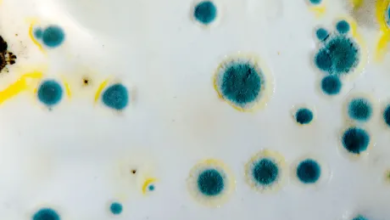
Introduction:
It is common to characterize medicine as both a science and an art, integrating technical proficiency and scientific understanding with compassion, empathy, and intuition. The humanistic elements of healthcare, such as the therapeutic interaction between medical professionals and patients, the value of communication and empathy, and the understanding of each patient’s uniqueness and dignity, are fundamental to the art of medicine. We delve into the complex nature of healing in this thorough investigation of the art of medicine, looking at the various factors that influence the provision of healthcare services and add to the healing process.
Understanding Healing:
Restoring mental, emotional, and spiritual well-being is just one aspect of the intricate and dynamic process of healing, which goes beyond the physical mending of the body. Healing include the development of resilience, optimism, and meaning in the face of hardship in addition to the use of medical interventions including drugs, procedures, and therapies to treat disease and injuries. The practice of medicine acknowledges that healing is an intensely personal process that is impacted by a variety of elements, including culture, values, beliefs, and the strength of the therapeutic alliance between patients and medical professionals.
The Therapeutic Relationship:
The therapeutic relationship—one marked by trust, empathy, and respect for one another—between medical professionals and patients is essential to the practice of medicine. This partnership serves as the cornerstone for efficient healthcare delivery by facilitating candid dialogue, group decision-making, and cooperative care planning. A secure, encouraging environment where patients feel heard, understood, and appreciated can be created by healthcare professionals who exhibit empathy, compassion, and active listening skills. This will encourage patients to take an active role in their own recovery.
Effective communication and empathy are fundamental to the practice of medicine because they allow medical professionals to relate to patients on a personal level, comprehend their worries, and successfully meet their needs. Healthcare professionals can establish rapport, reduce anxiety, and improve patient satisfaction by paying close attention, validating patients’ experiences, and giving clear and intelligible information. In addition to promoting patients’ autonomy and dignity and acknowledging the emotional and psychological aspects of sickness, empathic communication also promotes trust and cooperation in the healing process.
Cultural Competence and Diversity:
Recognizing the variety of patients’ origins, worldviews, and values as well as the influence of culture on health and recovery, cultural competency is a crucial component of the art of medicine. Healthcare professionals that exhibit cultural competency are able to appropriately negotiate cultural differences, communicate successfully through linguistic and cultural obstacles, and customize care to each patient population’s specific requirements and preferences. Healthcare professionals may create inclusive and equitable healthcare environments that support health equity and lessen care inequities by adopting cultural humility and lifelong learning.
Holistic Care:
Holistic care acknowledges the interdependence of the mind, body, and spirit as well as the significance of treating the spiritual, emotional, and physical aspects of well-being. Holistic healthcare practitioners approach patient care holistically, viewing each patient as a full person with distinct biopsychosocial requirements. This may entail combining traditional medical treatments with complementary and alternative therapies, such as massage therapy, acupuncture, and mindfulness exercises, in order to enhance recovery and wellbeing.
The Role of Art and Creativity:
It has long been understood that the arts and creativity may be effective therapeutic tools because they provide a platform for introspection, self-expression, and emotional release. Patients struggling with disease, trauma, and emotional discomfort are supported in healthcare settings through the use of art therapy, music therapy, and other creative methods. These therapeutic approaches can help patients heal in ways that go beyond conventional medical care by raising self-awareness, lowering stress, and fostering emotional resilience.
The Importance of Self-Care:
Healthcare professionals need to exercise self-care in order to keep their physical, emotional, and psychological health while providing care for others. The emotionally demanding nature of the healthcare industry can result in burnout, compassion fatigue, and a decline in overall job satisfaction. Prioritizing self-care activities like social support, mindfulness exercises, and regular exercise helps healthcare professionals manage stress, avoid burnout, and maintain meaningful and rewarding jobs in the field.
Narrative Medicine:
The field of narrative medicine acknowledges the value of patient and individual narratives in the delivery of healthcare. Healthcare professionals can improve clinical decision-making and strengthen the therapeutic relationship by learning about patients’ experiences, values, and beliefs through listening to their stories. By encouraging healthcare professionals to see patients as storytellers, narrative medicine enables patients to take an active role in their care and collaborate in the creation of tales that depict their healing and recovery. Healthcare professionals can use storytelling workshops, reflective writing, and narrative-based therapies to help patients and providers develop resilience, empathy, and understanding.
Compassionate End-of-Life Care:
End-of-life care necessitates a particular focus on dignity, compassion, and respect for the patient’s choices. Providing patients and their families with comfort, support, and a caring presence during a period of deep change and loss is the art of medicine in end-of-life care. Compassionate end-of-life care providers work to reduce suffering, respect patients’ right to self-determination, and help patients and their families find closure and meaningful relationships. Hospice and palliative care services provide patients with life-limiting illnesses with specialized assistance and symptom treatment with an emphasis on encouraging a dignified and peaceful dying experience.
Integrative and Functional Medicine:
By combining traditional medical procedures with complementary and alternative therapies, integrative and functional medicine methods highlight the significance of treating the underlying causes of disease and fostering overall well-being. These approaches recognize the interconnectedness of mind, body, and spirit and seek to restore balance and optimize health by addressing nutritional imbalances, environmental factors, lifestyle factors, and psychosocial determinants of health. Integrative and functional medicine practitioners collaborate with patients to develop personalized treatment plans that incorporate dietary modifications, nutritional supplements, stress management techniques, and mind-body practices to support healing and wellness.
Medical Humanities:
To get a deeper knowledge of the human experience of illness, suffering, and healing, medical humanities examine the intersections of medicine, literature, philosophy, ethics, history, and the arts. Through the study of literature, art, and other forms of human expression, healthcare providers gain insight into the emotional, existential, and ethical dimensions of healthcare, enhancing their ability to provide compassionate and culturally sensitive care. Medical humanities programs offer opportunities for healthcare providers to engage in reflective practice, interdisciplinary dialogue, and creative expression, fostering empathy, resilience, and moral imagination in healthcare practice.
Community Engagement and Social Justice:
The art of medicine extends beyond the walls of healthcare institutions to encompass broader efforts aimed at addressing social determinants of health and promoting health equity in communities. Healthcare providers play a vital role in advocating for policies and initiatives that address underlying social inequities, such as poverty, discrimination, and lack of access to healthcare. By engaging with community organizations, grassroots movements, and advocacy efforts, healthcare providers can work collaboratively to address systemic barriers to health and promote social justice, equity, and inclusivity in healthcare delivery.
Lifelong learning and continuing education:
In the ever-evolving field of medicine, continuing education and lifelong learning are essential for healthcare providers to stay abreast of the latest advancements, best practices, and evidence-based treatments. The art of medicine involves a commitment to ongoing professional development, critical thinking, and self-reflection to enhance clinical skills, expand knowledge, and improve patient outcomes. Through conferences, workshops, online courses, and peer-reviewed journals, healthcare providers can access resources and opportunities for learning and growth, enriching their practice and contributing to the advancement of healthcare as a whole.
Conclusion:
The art of medicine encompasses a wide range of principles, practices, and values that enrich the practice of healthcare and promote healing, resilience, and well-being. By embracing narrative medicine, compassionate end-of-life care, integrative and functional medicine, medical humanities, community engagement, and continuing education, healthcare providers can cultivate patient-centered care environments that honor the dignity, autonomy, and humanity of every individual. As we continue to explore the art of medicine, let us remain committed to fostering empathy, compassion, and social justice in healthcare practice, and upholding the values of dignity, respect, and healing for all individuals and communities.


